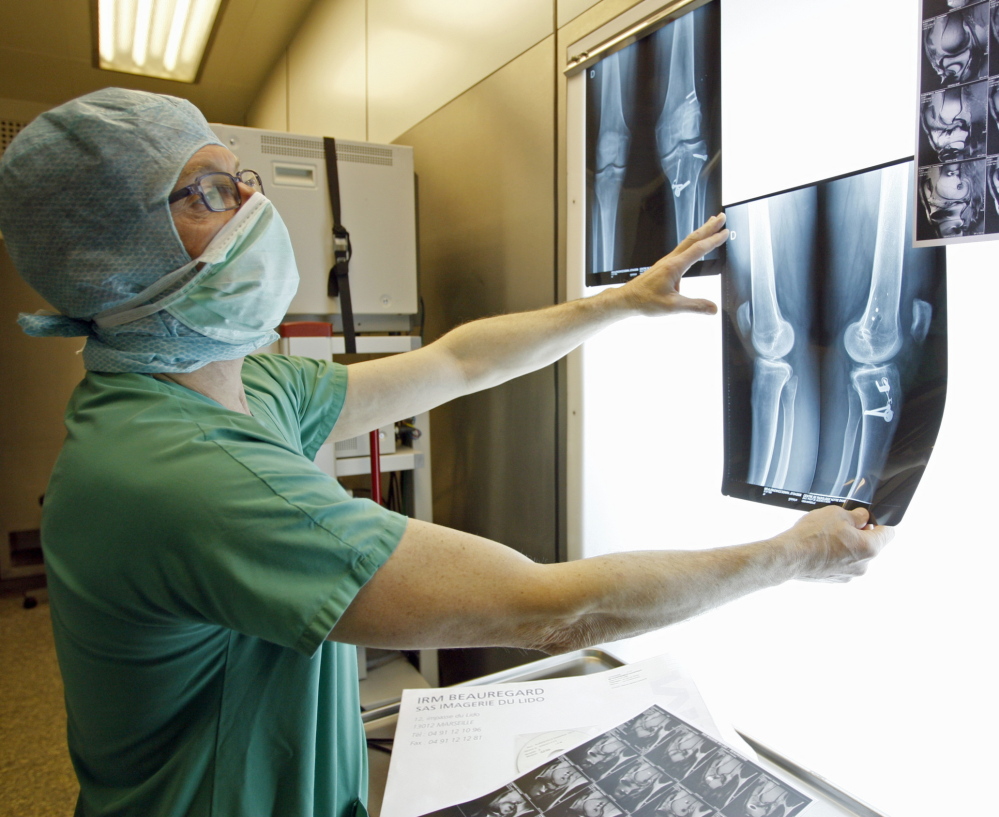TOKYO — A hospital in Tokyo will conduct Japan’s first transplant of cells grown from a patient’s own knee tissue to his damaged knee meniscus on Thursday, according to sources.
Medical Hospital of Tokyo Medical and Dental University will perform the operation on a man in his 50s.
Every year, an estimated 30,000 or more people are treated for knee meniscus trouble. About 90 percent of patients have the damaged region removed, and many of them are left with impaired knee functions.
The upcoming operation will use a method designed to repair the meniscus without removing the damaged region and preserve motor functions. The university will evaluate the safety of the method after six months before establishing it as a treatment method.
Located between the thighbone and tibia, knee menisci are crescent-shaped pieces of cartilage in the knee joint. Each knee joint contains a pair of menisci, one each toward the inner and outer sides of the leg. They serve to cushion the joint from impact. Because the cell density is low and the knee is often placed under a great deal of stress, a damaged knee meniscus can be difficult to repair.
Clinical trials in the field, including the upcoming operation, have been conducted by a group of doctors led by professor Ichiro Sekiya, an orthopedic specialist and the head of the university’s Center for Stem Cell and Regenerative Medicine.
On Dec. 12, the doctors harvested cells that could be easily grown into cartilage and other material from the synovial membrane, a protective layer of tissue covering the patient’s knee joint.
The cells, cultivated outside the body and made into a gel, will be injected into the patient’s knee Thursday. From the following day, the patient will be asked to move the knee to stimulate regeneration of the meniscus. Next June, the hospital will evaluate the safety of the method and the progress made in recovery.
The hospital is planning to treat a man in his 40s using the same method in January. Clinical trials on five patients in their 20s to 50s, including the man undergoing the operation this week, will be conducted through the spring.
Meniscus injuries, which can occur in people of various age groups, are particularly common among athletes and the elderly. A patient can experience extreme pain when bones in the knee joint are struck directly. The knee joint also may not bend adequately.
According to an estimate by the Health, Labor and Welfare Ministry, surgical stitches can repair only 10 percent of such cases, while the rest require removal of the damaged region.
Sekiya has conducted experimental cell transplants on pigs and concluded that a torn meniscus regenerates one month after a transplant, whereas it heals in four months if the damaged region is removed.
Copy the Story LinkSend questions/comments to the editors.



Success. Please wait for the page to reload. If the page does not reload within 5 seconds, please refresh the page.
Enter your email and password to access comments.
Hi, to comment on stories you must . This profile is in addition to your subscription and website login.
Already have a commenting profile? .
Invalid username/password.
Please check your email to confirm and complete your registration.
Only subscribers are eligible to post comments. Please subscribe or login first for digital access. Here’s why.
Use the form below to reset your password. When you've submitted your account email, we will send an email with a reset code.